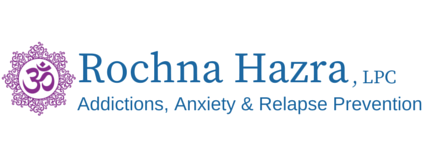According to the National Institute of Mental Health (2012), an estimated 16 million adults in the US aged 18 or older had at least one major depressive episode in the past year. This represents 6.9 percent of all U.S. adults. 80% of people that have symptoms of clinical depression are not receiving any specific treatment for the disorder. The reason many of your patients may not mention symptoms is that mental health issues carry a special stigma in our society. Far too often those who would benefit from treatment don’t get it due to lack of knowledge and misconceptions about the illness.
Below are five of the most Common Myths about Depression.
Myth: Depression is a sign of mental weakness
Fact: The stigma surrounding depression is that it is a sign of weakness. But depression is a complex medical disorder that has biological, psychological and social dimensions and the consequences of not treating it are just as real and tragic as those of other debilitating diseases. It is an illness that affects the chemistry of the brain and nervous system. Its symptoms also manifest in many parts of the body.
Myth: Depression is not a real medical problem
Fact: Depression is a real and serious condition. It is no different than diabetes or heart disease in its ability to impact someone’s life. It can have both emotional and physical symptoms and make life very difficult for those who have it.
Myth: Depression is always situational
Fact: While depression often does have a situational trigger like the loss of a loved one, loss of employment, divorce, etc., the underlying condition does not need any particular event to surface. Depression is typically diagnosed when someone suffers from prolonged episodes (at least two weeks) of hopelessness, emptiness and lethargy that have no apparent cause.
Myth: All I need is an antidepressant to treat depression effectively
Fact: Treating depression is not as simple as popping a pill. Combined psychotherapy treatment with medication is the most effective treatment regimen for depression. Anything else is going to be significantly less effective.
Myth: I’ll have to be on medications or in treatment for the rest of my life
Fact: While for some patients medications may be a long-term solution, most people who are diagnosed with depression do not need to be on medications or in therapy for the rest of their lives. In fact, research suggests that most people can be treated for depression successfully in as little as 24 weeks with a combination of psychotherapy, and if needed, medications.
There are many effective treatments for depression ranging from interpersonal psychotherapy, cognitive behavioral therapy and supportive counseling; anti-depressant medications; and electroconvulsive therapy (ECT).
About Rochna: Rochna Hazra is trained in Marriage and Family Therapy at Virginia Tech. She includes the emotional, psychological, spiritual and family aspects of a person in her work. Originally from India, she combines the Eastern traditions of mindfulness, non-judgment and a holistic approach to healing with the Western approach of realism and solution-focused action.
Rochna uses Cognitive-Behaviorial techniques to help you overcome depression.
Rochna is also a Certified Advanced Relapse Prevention Specialist and trained in Sex Addiction and Mindfulness-based Therapy and Relapse Prevention.
Click here to learn more about Depression treatment and my practice in Leesburg, Virginia


Leave A Comment